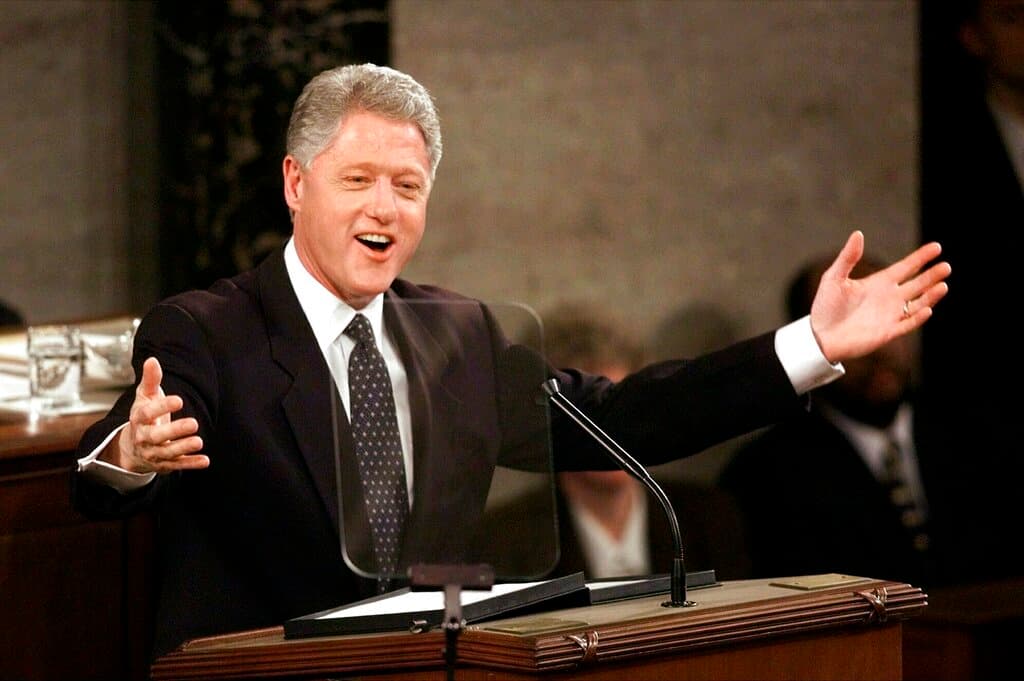Trump’s Double Jeopardy
Is an indictment of President Trump on charges similar to his second impeachment barred by the Fifth Amendment? It’s one of our favorite constitutional conundrums.

Nice to see that the New York Post has raised the question whether an indictment of President Trump on charges similar to his second impeachment would constitute “double jeopardy,” which is barred by the Fifth Amendment of our Constitution. It’s one of our favorite constitutional conundrums, and timely now that Attorney General Garland has set up John “Jack” Smith as special counsel to pursue Mr. Trump.
We’ve already noted Mr. Smith’s zeal “to try a case,” as he put it when he was at Justice, as a pressure tactic on defendants. One of his tasks now, as Mr. Garland explains, is to sort out whether Mr. Trump “unlawfully interfered with the transfer of power” on January 6. Sounds familiar to the impeachment charge, of which Mr. Trump was acquitted by the Senate after trial. “I thought this was all done,” the ex-president now says.
“I was tried on the fake impeachment hoax,” Mr. Trump reckons, then “they tried it in the Senate, they went through the whole process, and we won.” He concludes “they used to call it double jeopardy.” The Post’s report casts doubt on whether double jeopardy in this case would “pass legal muster.” For the Constitution contains an exception for “impeached individuals,” who remain on the hook, the Post observes.
Mark, though, the fine print. What the Constitution says is that the “party convicted shall nevertheless be liable and subject to indictment, trial, judgment and punishment.” Mr. Trump was not “the party convicted.” He was the party acquitted. In other words, the framers made themselves clear that an official who is impeached and convicted is liable for prosecution after ouster. It’s ambiguous, at best, in respect of one impeached and acquitted.
This presents a question that has beguiled legal sages going back to the Rights Bill’s drafting, when Madison proposed the original wording of the Double Jeopardy Clause to make clear that being impeached — whether convicted or not — would be no bar to future prosecution. “No person shall be subject, except in cases of impeachment, to more than one punishment or trial for the same offense,” he wrote. Yet his wording wound up being rejected.
Does that mean the founders wanted acquitted officials to be spared from “double jeopardy”? Not so, said Robert Bork in 1973 when the indictment of Vice President Agnew was mooted. Impeachment trials, unlike criminal trials, “may,” Bork observed, “sometimes be influenced by political passions.” Plus, too, “somewhat more than one-third of the Senate” might deem a crime “punishable in the courts,” yet not “on impeachment.”
The suggestion that an official acquitted under impeachment would as a result be spared from criminal prosecution, Bork wrote, could result in an abuse of the impeachment power. It would grant such an official “permanent immunity from criminal prosecution however plain his guilt.” That could even “give the Congress the power to pardon by acquittal,” he reasoned. He found “no such requirement in the Constitution or in reason.”
A similar reasoning was offered by President Clinton’s lawyer, Nicole Seligman, during her famous argument before the Senate. Urging the dismissal of the case, she reminded the senators “the criminal law will still have jurisdiction over Bill Clinton the day he leaves office.” She reckoned “the case would have no merit in a court of law” but said “that is the venue in which justice may be sought.” Quoth she: “Punishment will be found elsewhere.”
Mr. Clinton’s assistant attorney general, Randolph Moss, in 2000 conceded there was at least “a reasonable argument” for the view that the Constitution “should be read to bar prosecutions following acquittal by the Senate.” Mr. Trump can also take solace in Justice Neil Gorsuch’s recent dissent in a double jeopardy case: “A free society does not allow its government to try the same individual for the same crime until it’s happy with the result.”

